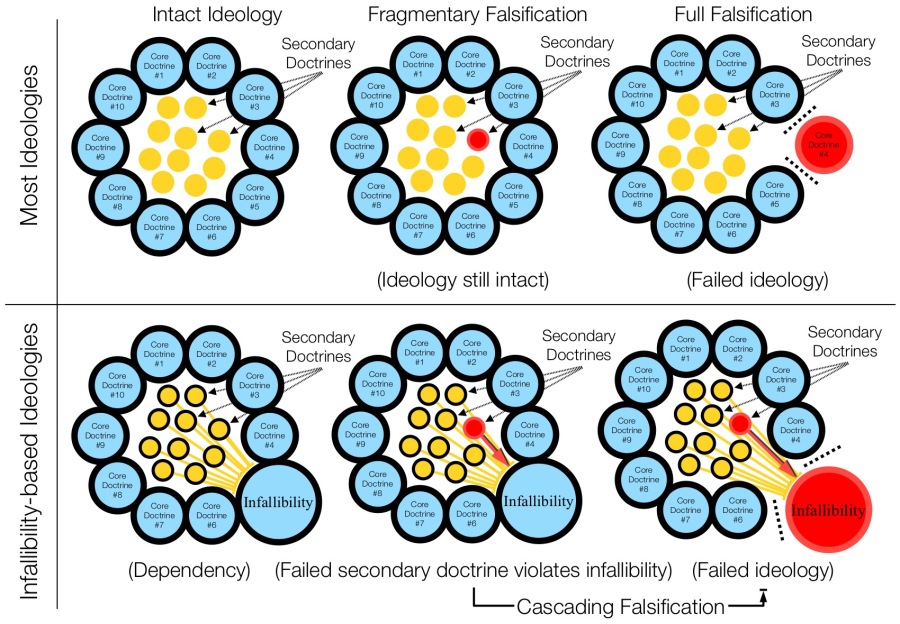 Is science an ideology? If it can be called such, it claims no inerrancy. As a result, any one of science’s secondary non-core “doctrines” can be falsified, and yet science will simply adjust for its blunder, and continue to pursue truth.
Is science an ideology? If it can be called such, it claims no inerrancy. As a result, any one of science’s secondary non-core “doctrines” can be falsified, and yet science will simply adjust for its blunder, and continue to pursue truth.
In contrast, most versions of Christianity hold that their ideology fails if 1) any of their core doctrines are falsified, and also if 2) any of their secondary doctrines fail. Such failure would results in a cascading falsification in which the falsification of a secondary doctrine would destroy the entire ideology since the ideology includes the core claim of the infallibility of secondary doctrines.
For this reason the enterprise of Christian apologetics seems to have become largely one of explaining away the apparent failures of biblical doctrines.
It is suggested that the Christian honestly re-examining their beliefs consider whether the standards of falsification that Christian leaders often use to falsify other infallibility-based religions are relaxed when the scrutiny is turned inward. For example, the following argument is used to invalidate Islam:
The Quran claims the Bible is true. But the Bible says Islam is false. Therefore, Islam is self-defeating and false.
And Muslims are rarely consulted for their response to this apparent falsification of Islam. Yet, when deductive argument of this same sort are used against biblical doctrines, there is often all manner of doctrinal maneuvering that Christians would not allow Muslims. For example, examine the many diverse and dubious explanations you’ll find to explain away the apparent contradiction in the 3-d
ay death of Jesus somehow substituting for the deserved eternal death of billions (see #35).
We will not go into much further depth here, but it is suggested that the seeker consider whether standards of falsification are being held consistent across all ideologies.



